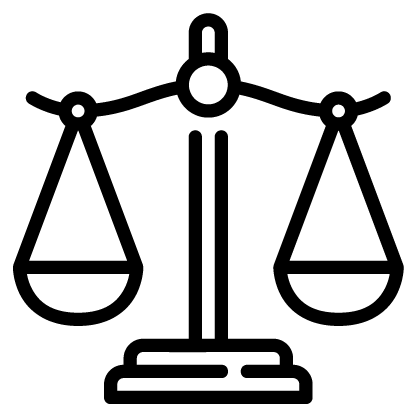
Academic integrity for HDR students
HDR students are expected to perform to high standards of academic integrity. When they don’t, they can face allegations of a minor breach, major breach or research misconduct.
Integrity checks
The University uses integrity checks throughout your candidature to identify any possible breaches of academic integrity. These include:
- A first-year milestone check, which involves submitting written work as part of your first-year confirmation milestone and progress evaluation meeting process.
- A thesis check, conducted when you submit your thesis for examination.
Academic integrity breaches
If the University suspects you of breaching the academic integrity rules, you will receive a breach allegation. There are 3 types of academic integrity breaches, defined in the University policy as:
- minor breach
- major breach
- research misconduct.
An academic integrity breach can include anything that a student does to gain (or attempt to gain) academic advantage through unfair or dishonest means. This also includes dishonestly trying to gain academic advantage for someone else, as well as for yourself. Academic breaches include plagiarism, academic dishonesty and research misconduct.
Plagiarism
Plagiarism is presenting someone else’s work as your own without appropriate acknowledgment.
The most common types of plagiarism are:
- copying another author’s work and presenting it as your own
- failing to reference another author’s work properly (or at all)
- paraphrasing another author’s work and failing to properly reference it.
It is very important to understand that these all count as plagiarism, regardless of your intention. Forgetting to insert a reference is still plagiarism under the University’s definition.
Plagiarism is always a breach of academic integrity rules. Depending on the circumstances, it can be either a minor breach, a major breach, or research misconduct. A more serious form of plagiarism would be considered a major breach, or research misconduct.
If your thesis is found to contain significant referencing errors after you have submitted it for examination, you could be asked to Show Good Cause to provide an explanation. You will only be asked to Show Good Cause if the level of plagiarism does not constitute grounds for a major academic integrity breach or research misconduct. If you are required to Show Good Cause, contact us for advice and support.
Academic dishonesty
Academic dishonesty is gaining, or attempting to gain, academic advantage, for oneself or for others, through unfair or dishonest means. This can include:
- recycling your own work (except with the approval of the examiner)
- dishonest plagiarism
- collusion (working with others to attain unfair advantage)
- contract cheating (asking someone to do your work, whether or not you pay them)
- fabricating data, information or sources
- submitting work for assessment with the intention to deceive the examiner
- inappropriately using electronic devices to access information during an examination
- bringing forbidden material, such as textbooks, notes, calculators or computers, into an examination
- attempting to read another student’s work during an examination
- inappropriate publication or uploading of an assessment, part of an assessment, or University teaching or course material, to a website, or to a filesharing or other online platform
- assisting another student to obtain an academic advantage by dishonest or unfair means
- communicating, by any means, with another candidate during an examination
- writing an examination paper, or consulting with another person about the examination, outside the confines of the examination room without permission
- copying from another student during an examination.
Academic dishonesty is considered a major breach of academic integrity.
Research misconduct
Research misconduct is a serious breach of University integrity rules which is also intentional, reckless or negligent.
Research misconduct can involve:
- falsifying research reports, results or data
- failure to declare serious conflicts of interest
- misleading ascription to authorship
- plagiarism or other breaches of academic integrity rules
- deliberately conducting research without the appropriate ethics approval.
All allegations of research misconduct will be referred to the Director of Research Integrity.
If you receive a notification of possible research misconduct, contact us immediately for assistance. You could face serious consequences.
Read the University’s Research Code of Conduct 2019 for more information on the responsibilities of all researchers, academic staff and students at the University. This policy defines research misconduct and breaches of the code related to plagiarism.
Get assistance
Contact us, our caseworkers can help you with any academic integrity issues.
Visit the Learning Hub to find academic integrity workshops or to book individual consultations.
The University has a network of Research Integrity Advisers available to assist you with any questions regarding research integrity. Contact a Research Integrity Advisor.
Policy
Check the University policy register, in particular:
- Academic Integrity Policy 2022
- Academic Integrity Procedures 2022
- Research Code of Conduct 2019
- University of Sydney (Student Discipline) Rule 2016
- Academic Integrity Decision-making and Penalty Guidelines 2023.
Download this article as a Word document
Download this article as a PDF
Written by SUPRA Postgraduate Advocacy Service June 2023.
Get help from a caseworker or solicitor.
Our services are here for you.
Postgraduate Advocacy Service
Our caseworkers are experts on Uni policy, and advocate on behalf of Usyd postgrads to improve your rights and research conditions.
SUPRA Legal Service
Our solicitors can assist with a wide range of legal issues, from intellectual property to contracts, as well as visas and migration law.



Stay in touch with us